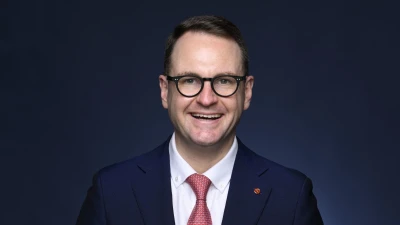What has Bragg concluded from ASIC inquiry?



Senator Andrew Bragg shares his biggest takeaway from the ASIC inquiry he has chaired, ahead of the publication of its final report.
Bragg has been chairing a Senate inquiry into ASIC and said the final report for it is due in June.
The inquiry was tasked with investigating the capacity and capability of ASIC to undertake proportionate investigation and enforcement action arising from reports of alleged misconduct.
Speaking at an event with the Financial Services Council (FSC) on 22 February, Bragg said: “I am surprised the government supported the obfuscation of the corporate cop. Effectively the internal governance at ASIC has taken up a lot of media attention, but they are a distraction from the main issue which is that it has a culture of lax law enforcement, so I was surprised the government got involved with that.
“The biggest takeaway is very clearly that the structure [of ASIC] is way too big and the culture is very sick.”
During the inquiry, Bragg had hit out at ASIC and its chair Joseph Longo for failing to answer or provide sufficiently detailed answers on a number of questions raised by the panel, which Bragg said “undermined” the inquiry.
Last June, Bragg said: “Rather than engaging with the committee in a transparent and accountable manner, from the outset ASIC has chosen to attempt to undermine and influence the process of the inquiry before evidence had been gathered or hearings held,” it said.
Following this, the sitting Labor government got involved and ruled that ASIC could provide the answers in camera, which would prevent it from becoming public knowledge.
Minister for Financial Services, Stephen Jones, said: “It is difficult to articulate claims of public interest immunity in public without revealing the information over which the immunity is claimed. As it stands, ASIC has not had the opportunity to put its claims plainly and the committee has not had the opportunity to interrogate those claims.
“An in camera hearing is the appropriate way forward, allowing the committee to undertake its work without forcing ASIC to reveal this information publicly before its immunity claims have been fully tested.”
While the final report is due in June, Bragg ultimately called for a whole financial system inquiry as he believes there are greater issues in the system beyond just the enforcement action of ASIC.
An inquiry is overdue, he said, as the last one – the Murray inquiry led by David Murray – released its report in 2014.
This would cover areas such as review of payments, how the financial sector can help younger Australians with housing, the influence of superannuation, deregulation and the overall regulatory architecture.
He said: “There is a strong case for a broader inquiry, similar to a financial system inquiry, because the regulatory architecture is out of whack. I am concerned about ASIC, and superannuation is so large that it has the potential to dislocate the whole financial system.
“The government also dropped the ball on digital payments and we need to make sure we can keep pace with our competitor jurisdictions on that.”
Recommended for you
ASIC has released the results of the latest financial adviser exam, held in November 2025.
Winners have been announced for this year's ifa Excellence Awards, hosted by Money Management's sister brand ifa.
Adviser exits have reported their biggest loss since June this week, according to Padua Wealth Data, kicking off what is set to be a difficult December for the industry.
Financial advisers often find themselves taking on the dual role of adviser and business owner but a managing director has suggested this leads only to subpar outcomes.












